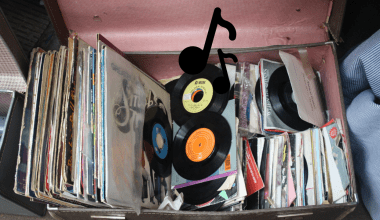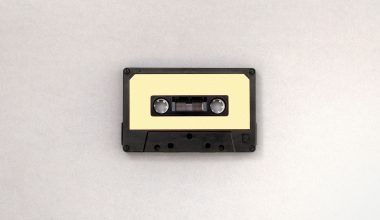If you’re new to the world of media and communication, you might have heard terms like press release and press conference. But what do they really mean? Are they the same thing? Why are they so important?
Don’t worry! In this blog, we will explain everything in the simplest way possible. By the end, you’ll know exactly what sets them apart and when to use each one. Let’s dive in!
What is a Press Release?
A press release is a piece of written information shared with newspapers, websites, and other media outlets. Think of it like an announcement you send to let the world know about something important. It could be about:
- A new product launch.
- A company milestone (like 10 years in business).
- A partnership with another company.
- An award or recognition.
- Your response to a trending topic or crisis.
It’s written like a news article and is meant to grab the media’s attention so they write about you.
What is a Press Conference?
A press conference is more like a meeting where you invite journalists to listen to your announcement and ask questions. It’s usually done for very important updates or events that need extra explanation.
For example:
- A movie star announcing their new film.
- A government official addressing a public issue.
- A company showcasing a new product or technology.
It allows journalists to hear directly from you and ask questions on the spot.
Why Are They Important?
Both press releases and press conferences help you:
- Get Noticed: Spread your news far and wide.
- Build Trust: People take your updates seriously when shared in a professional format.
- Control Your Message: Share what you want the public to know, in your own words.
What’s the Difference Between a Press Release and a Press Conference?
Let’s break it down:
| Feature | Press Release | Press Conference |
|---|---|---|
| Type | Written document. | In-person or virtual event. |
| Purpose | To share news or updates. | To share news and answer questions. |
| Who Sees It? | Sent to many media outlets. | Limited to invited journalists. |
| Cost | Affordable (mainly writing and sending). | Expensive (venue, equipment, etc.). |
| Interaction | One-way (no back-and-forth). | Two-way (you answer questions). |
When Should You Use a Press Release?
Press releases are perfect when:
- have routine updates like a product launch or an event announcement.
- want to save money but still reach many people.
- want to leave a permanent written record of your news.
When Should You Host a Press Conference?
Go for a press conference when:
- The news is big, complex, or urgent.
- You expect journalists to have questions.
- You want to show something live, like a product demo.
Let’s Make This Clearer with Examples
- Example of a Press Release: A company launching a smartphone might send a press release to tech websites explaining the features, price, and release date.
- Example of a Press Conference: The same company might also invite tech journalists to a live event where they show how the phone works and answer questions.
What Are the Benefits of a Press Release?
- Saves Money: No need to rent a venue or hire staff.
- Wide Reach: Goes to many media outlets quickly.
- No Stress: You control the message, and there’s no need to answer tough questions live.
- Permanent: Once published, it stays online for people to find.
What Are the Benefits of a Press Conference?
- Interactive: You can explain your points clearly and address doubts.
- Personal Touch: Journalists get to see your emotions, making the message feel more genuine.
- Great for Big News: Perfect for major announcements or crisis communication.
How to Write a Perfect Press Release
Writing a press release is simple if you follow these steps:
- Start with a Strong Headline: Make it short and attention-grabbing.
- Example: “XYZ Company Launches Revolutionary Smartphone.”
- Keep it Short and Clear: Stick to the point—what, where, when, why, and how.
- Add a Quote: Include a quote from a key person to make it more human.
- Example: “This product will change the way people use technology,” said the CEO.
- Include Contact Info: Tell journalists how to reach you for more details.
How to Host a Great Press Conference
Hosting a press conference takes preparation. Here’s what you need to do:
- Pick the Right Venue: Choose a place that’s easy to access, with good lighting and sound.
- Invite the Right People: Focus on journalists who write about your industry.
- Prepare Your Speakers: Practice the key points and rehearse possible questions.
- Provide a Media Kit: Include brochures, photos, and key information for journalists.
- Check the Equipment: Test microphones, cameras, and visuals beforehand.
Can You Use Both Together?
Yes, sometimes combining a press release and press conference works best. For example:
- Send a press release before the press conference to generate interest.
- Use the conference to explain details and answer questions.
- Follow up with another press release summarizing the key points from the conference.
Common Questions People Ask
Q: Which is better for a small business, a press release or a press conference?
A: For small businesses, press releases are better. They are cost-effective and reach many people without requiring a big event.
Q: Can I skip a press release if I’m hosting a press conference?
A: It’s better to do both. A press release ensures your news is shared even if journalists can’t attend the conference.
Q: What’s more effective during a crisis?
A: A press conference works better during a crisis because it allows for real-time interaction and clarification.
Conclusion: What’s Your Next Step?
Now you know the difference between a press release and a press conference. Both are powerful tools, and using them the right way can help you reach more people, build trust, and share your news effectively.
The key is to think about your audience, your message, and your budget. If you want to share information widely, a press release is your best bet. If you want to engage directly with journalists, go for a press conference.
With this knowledge, you’re ready to make your news heard. So, what are you waiting for? Start planning your next big announcement today!
Related Articles:
For further reading, explore these related articles:
- How Advertisement Music Helps Brands Connect With People
- How to Use Shazam Music Downloader and Its Alternatives
For additional resources on music marketing and distribution, visit Deliver My Tune.






